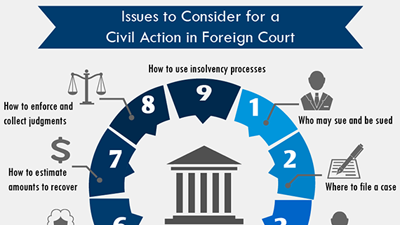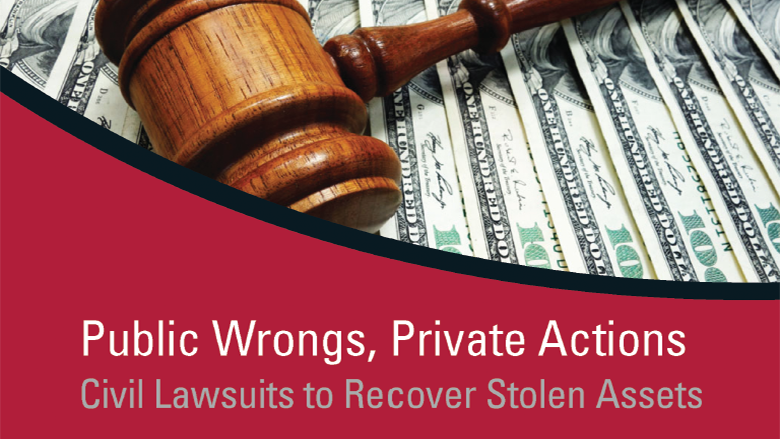Significance of the Study
The “Public Wrongs, Private Actions: Civil Lawsuits to Recover Stolen Assets” publication explores how states and government entities can use civil lawsuits and remedies to recover assets stolen by former officials and/or get compensation for damages caused by corruption. Civil remedies are one of four avenues through which states may pursue asset recovery. Other avenues, including criminal, non-conviction based or administrative confiscation, are often unavailable for political or technical reasons. In this context, civil lawsuits and direct recovery, encouraged by article 53 of UNCAC, represent an alternative method to recover assets or a complement to other avenues.
Key Elements of the Study
Authorities seeking to recover stolen assets have the option of initiating civil lawsuits in domestic or foreign courts to secure or recover the assets. A civil lawsuit is a civil action between two private persons in a court of law, by which a plaintiff who claims to have incurred loss as a result of a defendant’s action requests a legal or equitable remedy. The court of the foreign jurisdiction may be competent if the defendant (individual or legal) person is living or incorporated in the jurisdiction; if the assets are within or transited the jurisdiction; of if an act of corruption or money laundering was committed within the jurisdiction.

Civil lawsuits are based on “proprietary” as well as “personal” claims.
Proprietary claims target specific assets that previously belonged to, or were beneficially owned by the State, which then reclaims its own property; in this context, collecting evidence, tracing and securing specific assets is critical to avoid dissipation or loss of value. Quick action is essential. On the other hand, personal claims involve actions against the corrupt person or third parties for monetary damages based on torts, breach of contract, illicit enrichment; in this context, the State will need to quantify the financial consequences of the corrupt conduct to justify the amount it claims in damages. A number of methods, described in the study, may be used to calculate this amount. In some countries, compensation for damages can be claimed as a civil party even in the context of criminal prosecutions.
The report gives an overview of the various topics and steps for states to consider when contemplating civil action in foreign court. It describes a step by step, practical approach of the various strategic, tactical, and technical issues of the legal action. Each topic is illustrated with case studies showing challenges, best practices and actual examples of successful direct recovery. Read more at www.worldbank.org/star.

